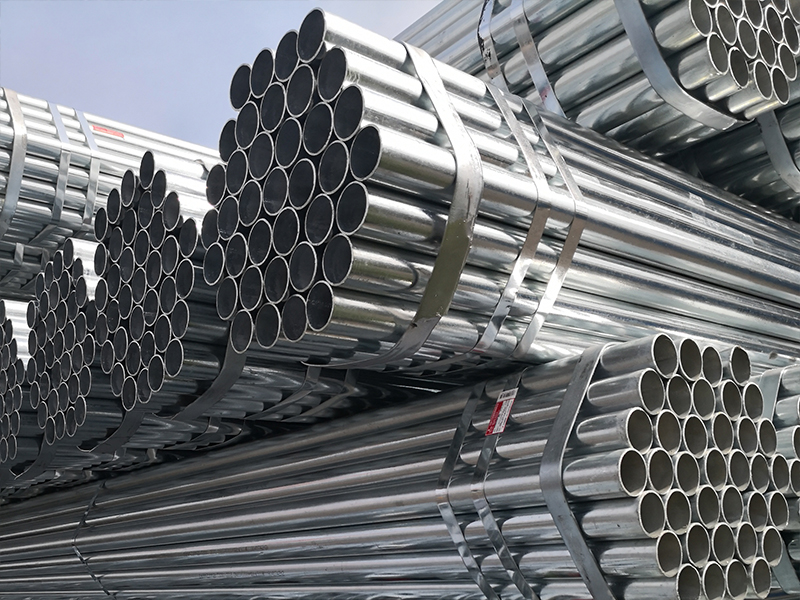Considerable clouds early. Some decrease in clouds later in the day. High 83F. Winds NW at 5 to 10 mph..
A man stands on bundles of steel pipes in a steel products dockyard along the Yangtze River in southwestern China's Chongqing municipality in 2014.
Trinity Products’ 170 employees heard good news this week: They’re on pace to earn more than $5,000 apiece in profit sharing this year.
That’s up from $1,100 last year and a dramatic improvement from 2015, 2016 and 2017, when the steel pipe manufacturer didn’t earn enough to trigger the payments.
The difference, company President Robert Griggs says, is that President Donald Trump’s tariffs, along with a series of anti-dumping rulings, have made pipe manufacturing a good business again.
Trinity’s pipe mill in St. Charles was shut down last week by flooding, but Griggs expects it to be running this week, making large-diameter pipe for ports, oilfields and construction projects around the country. Trinity also operates a fabrication plant in O’Fallon, Mo.
In 2016 and 2017, Trinity lost a series of big orders to pipe from China that was being sold, Griggs says, for less than he would have paid for the raw steel to make the pipe. On a project at New York City’s Holland Tunnel, he lost to a company selling pipe fabricated in Turkey from steel coils made in China.
Trinity has a rail facility in Pennsylvania, 90 miles from the tunnel, but it couldn’t compete with steel that traveled two-thirds of the way around the globe. “We were the low-cost domestic producer, and we lost that bid by 12%,” Griggs recalls. “We couldn’t get a single one of those large projects at the time.”
Trinity put $8 million worth of capital projects on hold during the lean times and reduced its 401(k) match, but the worst part, Griggs says, was having to disappoint workers. Trinity practices open-book management, sharing monthly financial reports with employees and also sharing profits with them in good years.
“I’m embarrassed getting up in front of my employees when they work hard and I have to say, ‘Guys, we’re not making enough profit,’” Griggs says.
The U.S. steel industry says the problem was, and is, overcapacity in China. The Organization for Economic Cooperation and Development calculates that the world’s mills can make 561 million more tons than steel users need, and much of that excess was created when China doubled its steelmaking capacity between 2006 and 2015.
Griggs said he hadn’t worried much about trade issues in the past, but when the glut of foreign steel started hurting his business, he decided to fight. Trinity joined a group of pipe producers that filed trade complaints against China and five other countries.
In April, the Commerce Department ruled that importers of large-diameter Chinese pipe should pay punitive duties of 337%. It also imposed duties on pipe from Canada, Greece, India, South Korea and Turkey.
Those levies, on top of the 25% tariff that Trump imposed last year on most imported steel, have turned things around for producers like Trinity. “We’re in the best position I’ve seen in a decade,” Griggs said.
The tariffs do come at a cost for the broader U.S. economy. One study, by economists from the New York Federal Reserve Bank, Princeton University and Columbia University, estimates that Trump’s tariffs are costing consumers and businesses $3 billion a month in added taxes and $1.4 billion a month in lost efficiency.
Griggs, however, argues that the government needs to protect U.S. manufacturers from unfair, subsidized competition. There were times when he questioned his sanity for investing $10 million to open the St. Charles plant in 2007 and millions more to expand it since then.
Being able to hand out those big profit-sharing checks at year’s end, he says, will make it all worthwhile.

Post time: Jun-20-2019